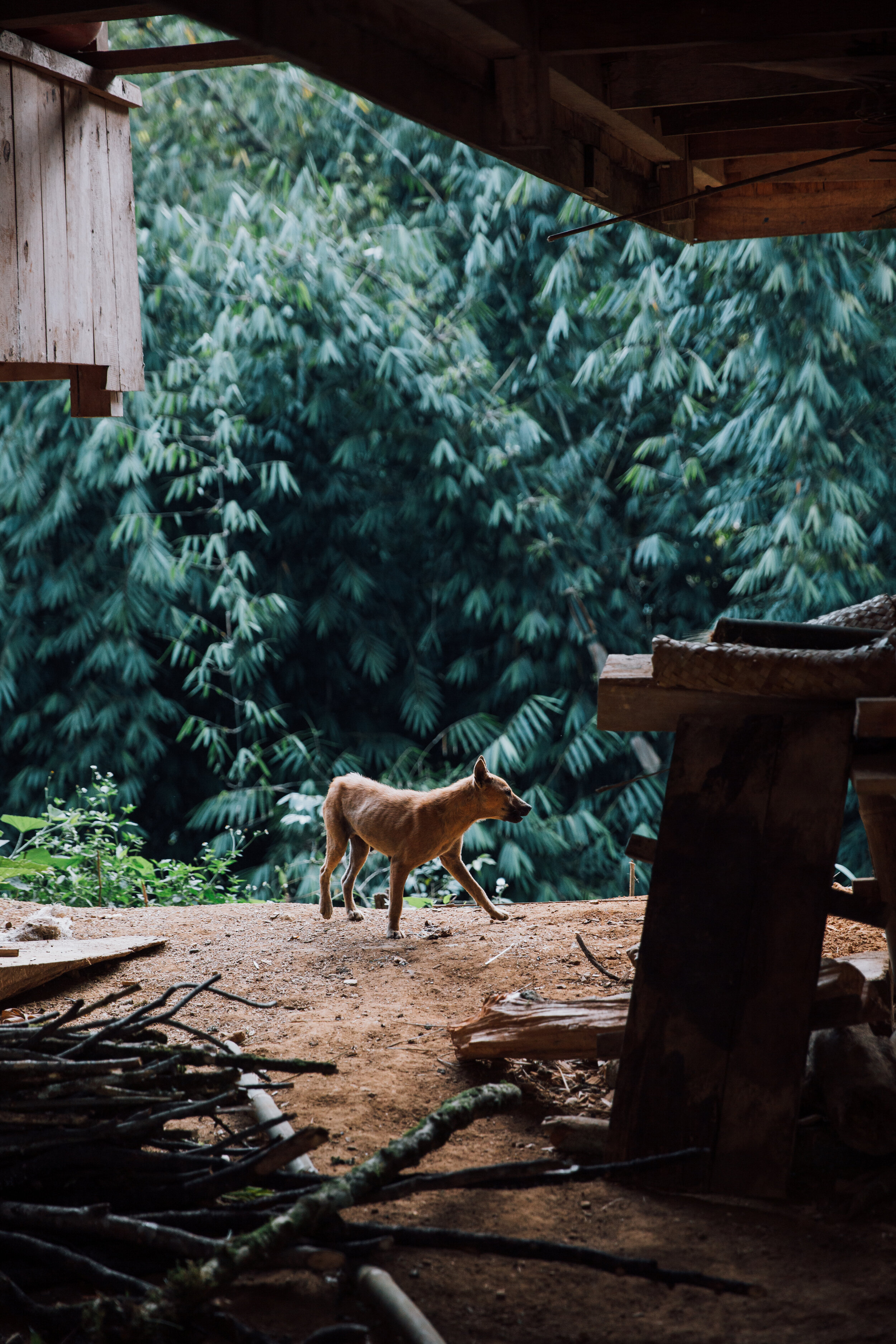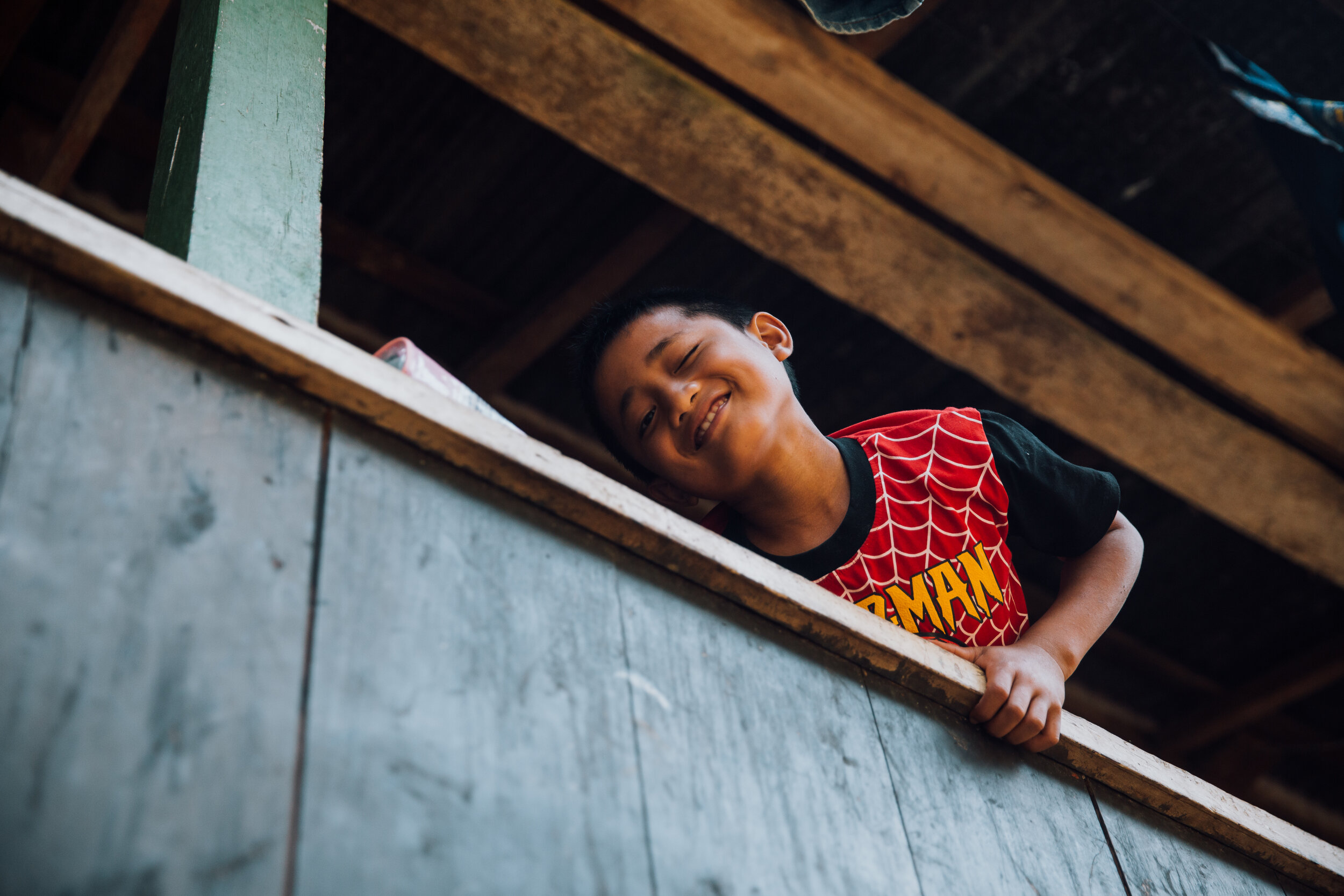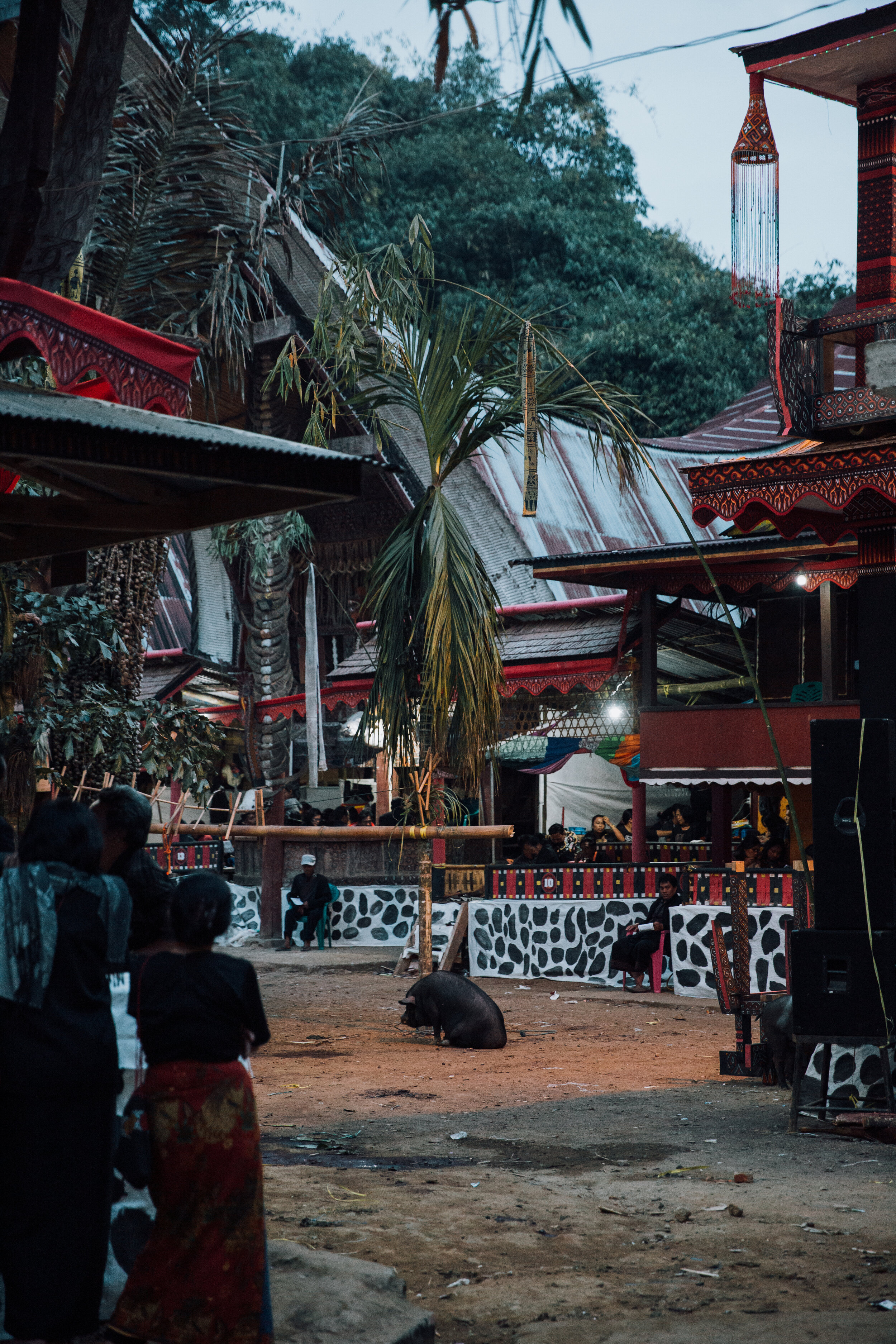WIlD FLAVOURS FROM AN ASTOUNDING CULTURE
In 2018, our Indonesian exporter Adri Yahdiyan from Ontosoroh Coffees convinced us to try a sample of a microlot from the island of Sulawesi. We were astounded by the complex flavour notes that ranged from spices and nuts to bright tropical fruits and expressive florals - a coffee that was as African as Indonesian, all at once. That year we tested it out in the European market, the few bags we had sold out in no time, receiving even more enthusiasm than we had anticipated ourselves. It was the start of a wonderful journey.
In the summer of 2019, Maarten visited the farmers in Buntu Ledo. Quite a trip, Buntu Ledo lies hidden in the heart of the beautiful island of Sulawesi. He met a culture and architecture there that were too astounding to describe briefly . They had some constructive talks with the farmers that led to the establishment of the farmer group “Koperasi Buntu Ledo Sipporanu”. This group is growing as more farmers enticed after hearing about our high prices (100% above market), and the coop’s eligibility to receive pre-financing through our partners Progreso. The farmers expressed great curiosity in learning more about specialty coffee, the end market, agricultural practices and more. With a coffee like this and some very talented and ambitious farmers, we couldn’t be more excited about this project.
CULTIVARS :
Arabica S795 and Typica.
ALTITUDE :
1,750 - 2,100 meters above sea level
Notable:
Farmers in Buntu Ledo are steadily becoming an independent collective and cooperative. Farmers in this group would like to have more say on their coffee. Coffee is grown with strict no slash and burn practices based on local customs law. It is shade grown with medium density.
PROCESSING:
Unclean washed: A very particular type of honey washing which we provokingly decided to call “unclean washed”. The coffee is pulped first then wet fermented: submerged / soaked in a water tank inside plastic bags for at least 48, up to 72 hrs. The difference with a full wash is that there is no additional water rinsing after fermentation. The coffees on the bags are simply drained and then dried on bamboo beds. The amount of mucilage left is somewhere between fully washed and pulped natural.
Washed: Red coffee cherries are handpicked in the moring and manually pulped in the afternoon. The pulped coffee is stored in plastic strawbags and submerged under a water tank for 48-72 hours fermentation. The coffee is then ligthly rinsed with running water and subsequently dirend on raised bamboo beds for 12-16 days.
Key ACHIEVEMENTS:
2018: started with the first microlot and exporting partner Ontosoroh hired a local Torajan coffee expert to help the farmers progress.
2019: creation of the cooperative. This Side Up visits the farmers, the relationship gets stronger. With Ontosoroho’s support, the first drying dome and dry mill in Buntu Ledo is built.
2020: implementation of traceability coding that facilitates the follow up of crucial information.
2022-2023: sadly, and because of the rapid effects of the climate change, Buntu Ledo faces a major disruption in weather pattern, resulting in drop of harvest up to 70%.
TASTIFY™ CUPPING NOTES :
PHOTO GALLERY :
You may use these images freely to promote Buntu Ledo among your customers.
Wonderful Toraja - the culture and the coffee :
In the summer of 2019, Maarten van Keulen visited the farmers in Buntu Ledo. The culture he saw there was unlike anything he was prepared for. The otherworldly architecture of the houses aside (see pictures), the Torajan treatment of their dead is something unlike any modern culture —and reminiscent of ancient, neolithic cultures throughout the planet.
To Torajans, the death of a loved one is not final and death itself is viewed as the single most important event of the life cycle. When a Torajan dies, the deceased is embalmed and placed at home. They are not considered dead until a funeral takes place, which could be months or years later. In the interim, they are deemed as sick and household members tend to them round the clock with food and beverages. They are treated as guests, and it is not uncommon to have more than one sitting around in the home.
So when Adri and Maarten arrived and were offered tea in one of the coop members' homes, it was a slight culture shock to see a deceased, embalmed family member sitting in a chair next to them. They also happened to arrive during the funeral ceremony and were treated as guests of honour. Considering this was Maartens’ first origin trip for This Side Up, he hit the uniqueness jackpot immediately in terms of culture —and also in terms of coffee.
As for the coffee, Toraja is one of the few places in Indonesia where arabica is the dominant species grown. It thrives in the highlands that are over 1500 meters above sea level, and has done so since the Dutch relocated some of Java's arabica production after an outbreak of leaf rust in the mid 19th century. We were definitely not the first to discover the uniqueness of this coffee's flavour profile: the Japanese have been steadily buying Torajan coffee since the 1990’s, prizing the S795 variety which supposedly is responsible for the coffee’s syrupy sweetness. Nonetheless, the region’s coffee sector went into decline. In the early 2000s, the government initiated several large scale coffee rejuvenation programs as a countermeasure, but unstable and low prices and complicated, unfair local value chains persisted, causing farmers to move away from coffee production. In Buntu Ledo, from the 500 farmers that were part of the rejuvenation program, only about 20 families remain.
Meanwhile, in the late 2000s, the specialty segment in Europe and the US started to take notice of Torajan coffee, long withheld from it due to, in our view, a prejudice against Indonesian coffees. Often thought of as earthy and spicy due to the famed (or dreaded) giling basah (literally translated: wet ground - meaning wet hulled) processing method, the possibility of a fruity, light bodied, African style filter coffee simply didn’t add up in specialty coffee professionals minds until recently. We are happy this is changing now, but are also wary of how fickle specialty coffee demand is. In a region where many waves of investment and disappointment have superseded each other, we do not want to disappoint the remaining passionate farmers and vow, as a company, to make sure to 1) reward the farmers consistently (100% above market prices!) for treating their unique coffee as well as they do and 2) keep coming back, year after year, as the Bunto Ledo project grows and evolves.
In 2019, with the help of Pak Dominggus, the village of Buntu Ledo set up a cooperative structure in 2019 (Koperasi Buntu Ledo Sipporanu) with Ontosoroh and This Side Up as stable buying partners. As it is set up now, it has huge coffee potential. The 80 hectares of coffee plantation were relatively run down but the active farmers in the coop are starting to upgrade the land and take Ontosoroh’s processing specialism to heart. The high prices Ontosoroh and This Side Up pay, have in turn gotten the surrounding farmers to start talking. In 2020, we have therefore jointly decided to import the neighbouring farmers’ lot in Bunto Pepasan as well.
Alongside the newly established Koperasi Buntu Ledo Sipporanu co-op, Ontosoroh and the coop are initiating a path towards geographical indication (GI) in Buntu Ledo that could lead to the development of tourism and reignite more enthusiasm for coffee planting.
After a very enthusiastic reception of the first harvest in Europe, in 2020 we were confident to triple our order from Buntu Ledo. This immediately triggered more farmers to want to join the project and Adri proposed to create a second lot from outgrower farmers, which we named Buntu Pepasan. This second lot was processed according to similar standards as Buntu Ledo proper, but exhibited significantly more quakers. Training was required to let this second experimental lot shine with its full potential, which is what was invested in with the premium we paid.
In 2021, we decided to rename the coffee’s processing from special honey washed to unclean washed. A provoking and perhaps unsavoury name, but what we intended was for people to ask questions about what makes this processing so unique. It worked. We now have three lots from Buntu Ledo, the Buntu Ledo traceable farm lots which can be traced to individual member farms through codes on the bag. These are the coffees by the coop proper, and exhibit the greatest amount of complexity. Buntu Pepasan was renamed Buntu Ledo Village lot and has become significantly better this year, with a fraction of the quakers compared to the year before. Lastly, the coop experimented with natural processing, of which we imported a small lot.





































